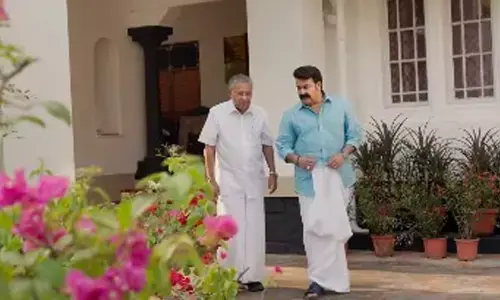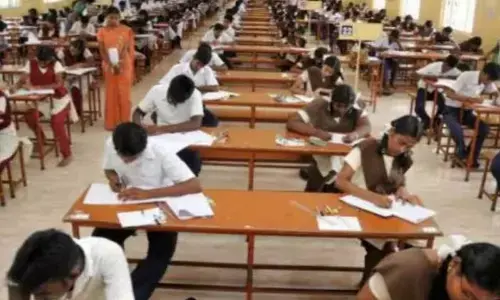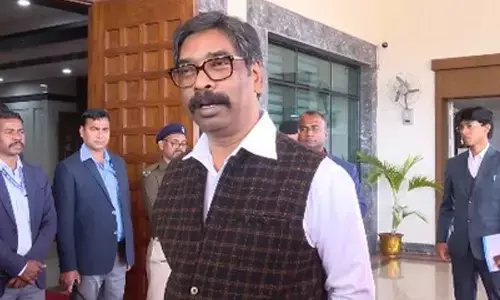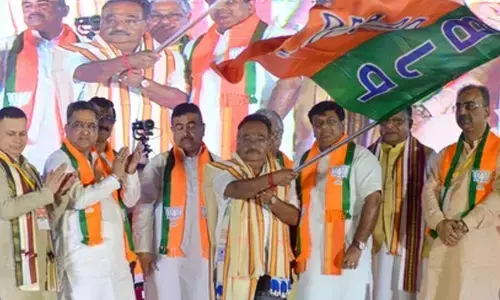Congress stands at a strategic crossroads
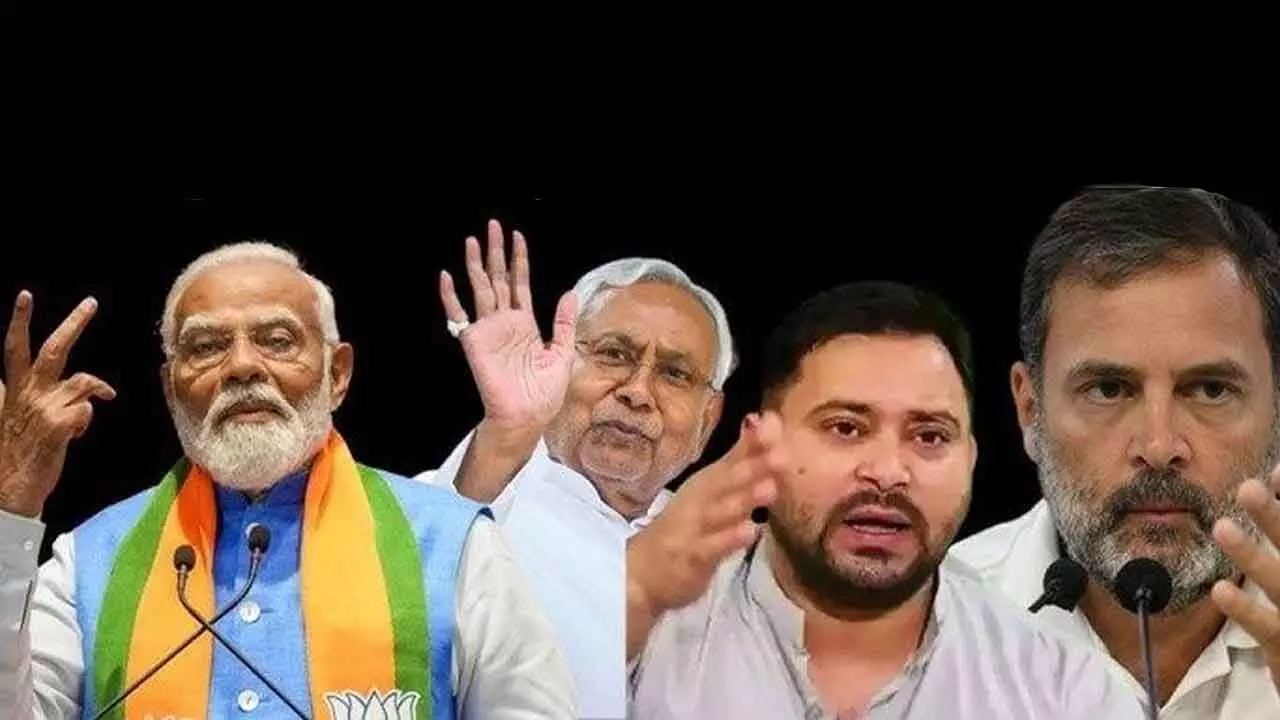
TO GO SOLO OR NOT
While the upcoming Bihar elections will be a crucial test for all major parties, the BJP-JD(U) alliance appears to have an edge, but opposition unity – or the lack thereof – will play a decisive role. Congress is having to choose between strengthening its independent identity in state elections or staying within opposition alliances. Some party insiders advocate for contesting state elections independently while limiting alliances to Lok Sabha elections. If Congress follows this strategy in Bihar, it could fragment opposition votes, inadvertently benefiting the BJP-JD(U) alliance. Simultaneously, its struggles in Karnataka and Telangana reflect broader challenges in governance and party cohesion
All major political parties, including the BJP-led NDA, Congress, RJD, JD(U), and others such as Prashant Kishore’s Jan Suraaj, have entered into election mode nearly seven months ahead of the Bihar Assembly elections. While the BJP and JD(U) have confirmed their alliance, as evidenced by the recent camaraderie between Prime Minister Narendra Modi and Bihar Chief Minister Nitish Kumar, the Congress stance within the Mahagathbandhan remains uncertain.
Bihar’s electoral landscape indicates that securing around 40% of the votes is key to winning Assembly seats. Each party has a distinct voter base: BJP commands approximately 20%, JD(U) holds around 15%, RJD also has about 20%, Congress maintains 8%, and the left parties collectively have 6%. The entry of Jan Suraj adds another dimension, and its potential vote share remains uncertain.
As things stand, the BJP-JD(U) alliance is firmly established, while the five-party grand alliance comprising RJD, CPI, CPM, and CPI-ML is also taking shape. Despite local Congress MLAs affirming their inclusion in the grand alliance under Tejashwi Yadav’s leadership, signals from New Delhi suggest otherwise.
For the first time in recent years, the Congress appears to acknowledge the need for drastic organisational reforms to enhance its electoral prospects. Despite a decision to revamp the party at the December Belagavi meeting of the Congress Working Committee, little progress has been made. Until recently, party members relied on Rahul Gandhi for direction. However, after a poor performance in the Delhi elections, the leadership appears to be re-evaluating its strategy, considering better engagement with senior leaders and new approaches.
A critical dilemma for Congress is whether to contest the Bihar elections independently or remain within the INDIA bloc. Rahul Gandhi, who previously expected unquestioning loyalty from party members, now seems more open to dialogue. Reports suggest he recently met with Shashi Tharoor, who had long sought an audience with him. Many within the party believe that the Congress has underutilised its talent, both in Parliament and beyond.
There is a growing consensus within Congress that a shift in its political narrative is necessary. Whether Rahul Gandhi agrees remains a ten billion-dollar question. Some party insiders advocate for contesting state elections independently while limiting alliances to Lok Sabha elections. If Congress follows this strategy in Bihar, it could fragment opposition votes, inadvertently benefiting the BJP-JD(U) alliance.
In the Lok Sabha elections, NDA’s vote share increased from 47% in 2024 to 52% presently, while the INDIA bloc saw a rise from 39% to 42%. Given NDA’s stronghold and internal cohesion, dislodging it from power in Bihar appears challenging. If Congress contests independently, it could significantly impact opposition unity by splitting anti-incumbency votes, indirectly aiding the BJP-JD(U) alliance. With JD(U) and Lok Janshakti Party forming a formidable force, the still-fragmented Mahagathbandhan may struggle to mount an effective challenge.
Even seasoned political strategist Prashant Kishore does not dismiss a BJP-JD(U) victory. However, he predicts that Nitish Kumar will not return as Chief Minister. According to him, the BJP-JD(U) alliance will secure a win, but the BJP will install its own CM, potentially causing Nitish Kumar to break away from the NDA. He boldly asserted that Nitish Kumar’s waning popularity would prevent him from securing another term regardless of alliances.
“Anyone can become the Chief Minister after the elections, except Nitish Kumar. If I am proven wrong, I will abandon my own political campaign,” Kishore declared, emphasising that public sentiment was not in Kumar’s favor. He further claimed that if Nitish is projected as the NDA’s CM candidate, the BJP could lose all seats in Champaran. According to Kishore, the BJP will use Nitish Kumar as a mere electoral face without intending to retain him in power.
While Bihar’s political climate remains intense, Congress’ struggles extend beyond the state. In Karnataka and Telangana, where Congress recently secured power, its governance appears to be faltering. In Karnataka, the party is grappling with implementing the “Khatakhat Fatafat” promises made by Rahul Gandhi before the elections. Additionally, internal power struggles and factionalism are surfacing, leading to increased instability. Telangana presents a similar challenge. Implementing pre-election promises has proven difficult due to financial constraints, with a significant portion of revenue allocated to salaries and debt servicing. The BJP and the BRS have emerged as formidable challengers, keeping Chief Minister Revanth Reddy under pressure. Furthermore, the Congress’ defeat in the Graduate MLC elections, where it lost to the BJP, exposed internal weaknesses. The BRS’ decision not to contest the election seemingly facilitated a transfer of votes to the BJP, hinting at a possible tacit understanding between the two parties. However, both the parties harbour ambitions of coming to power, making any formal alliance uncertain.
Internal discord within Telangana Congress is another major issue. The situation has become so dire that the AICC had to replace the party in-charge, appointing Meenakshi Natarajan to restore order. However, whether she can successfully mend intra-party divisions remains to be seen. The Congress high command appears to believe that Chief Minister Revanth Reddy is not receiving full support from his colleagues. This aligns with Congress’ long-standing problem – internal factionalism that often proves more damaging than external opposition.
While the upcoming Bihar elections will be a crucial test for all major parties, the BJP-JD(U) alliance appears to have an edge, but opposition unity – or the lack thereof – will play a decisive role. Congress faces a strategic crossroads, needing to choose between strengthening its independent identity in state elections or staying within opposition alliances. Simultaneously, its struggles in Karnataka and Telangana reflect broader challenges in governance and party cohesion.



